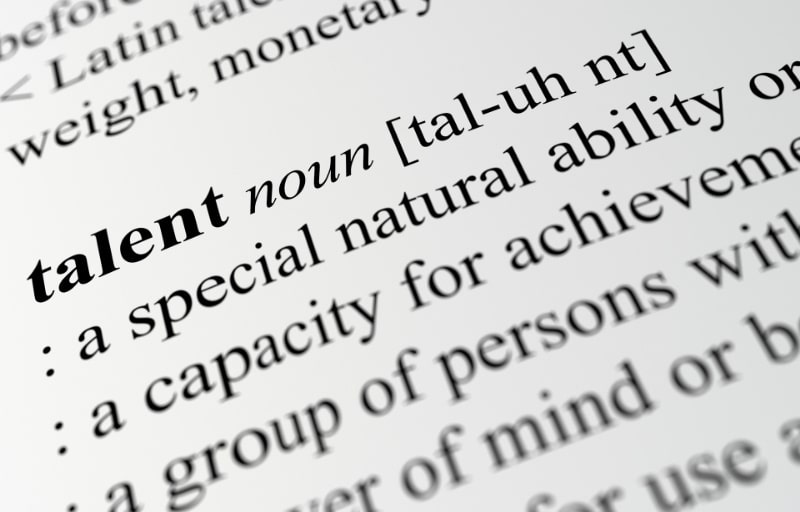Do you feel like you’re not good at anything? Have you questioned whether you have any talent at all?
Well, you’re completely wrong, but you’re not alone. Everyone possesses unique talents, but many fail to understand their strengths.
To discover what you are good at, you must first change the belief system that led you to your self-limiting beliefs in the first place. Then, you can begin to discover what you are good at by:
- Exploring your past experiences,
- Asking others around you, and
- Getting curious.
Skip Ahead
“I’m Not Good at Anything”: The Real Meaning Behind Your Thinking
Picture meeting your friend for a drink one night at your favorite bar. You’ve known this friend your whole life and he knows you better than anyone.
You order your drink of choice, sit back in your chair and begin to look forward to the night ahead. Then, out of nowhere, your friend starts in on you:
“You’re not good at anything.”
“What?!” you ask, both shocked and horrified. You must have misheard him. But he continues:
“You have no talent. Everything you try is a failure. There is not one thing you excel at.”
Once you are finally able to collect yourself, how quickly would you punch your friend in the face or demand he leave the bar?
We’d be outraged if anyone talked to us that way, let alone someone we trust and consider a close friend.
Yet we do let someone talk to us like this every day, someone who knows us better and more intimately than anyone. We talk to ourselves that way all the time.
Through our inner monologue, we make degrading comments to ourselves every day. “I’m not good at anything” is one of those self-inflicted insults and it’s simply false.
If you feel this way, you:
- Don’t realize your top talents,
- Are undervaluing yourself, and/or
- You need more information to figure out your top strengths and skills.
Untether Your Soul: How to Stop Feeling Inferior
The above story about going to a bar with a friend was inspired by a book I highly recommend, The Untethered Soul by Michael A. Singer:
From the very first chapter, Singer discusses the negative beliefs we reinforce within ourselves daily. And how we would never say the things we tell ourselves to anyone else.
That negative self-talk makes us feel inferior and convinces us we aren’t talented. Overcoming those thoughts is the first step to figuring out what we are good at and what we have to offer to the world.
By clearing your mind and eliminating the negativity, you can start to view yourself in a more positive and constructive light. Then you can focus on gathering evidence to help you define your talents.
How to Find What You’re Good At
Once you’ve done the work to change your belief system, here are 10 ways you can identify your talents:
1. Revisit your past successes
Chances are you’ve already accomplished quite a few things in your life and you are downplaying those accomplishments.
Whether it was landing a job, being a good father or any other goal you’ve reached, look back on those successes and evaluate the skills and effort it took to achieve them.
What did you do well to reach those milestones? The work you put into each achievement can provide clues to your talents.
2. Ask your friends and family
Besides maybe our coworkers, no one sees our best qualities in action more than our friends and family.
They appreciate us for who we are and what value we bring to their lives. Have a conversation with them and ask them what they think your talents are.
Some of the feedback you get may surprise you. Rarely do we take time to tell our friends and family why we appreciate them.
Talk with your biggest fans and ask them about your best qualities and take their answers at face value. Don’t let your negative self-talk take away from their genuine praise.
3. Decide how you want to feel about yourself
If you feel like you aren’t good at anything now, how do you want to feel? And what would make you feel that way?
How do you define talent and what would you need to do to feel talented?
Ask yourself these and other powerful questions to help change your perception of yourself and uncover your talents. And then take small steps daily and weekly to move toward how you want to feel.
4. Ask your professional colleagues for a testimonial
We often spend more time during the week with our co-workers than we do our families. For that reason, they can provide a lot of insight into what we’re doing when we are at our best.
Ask the people you work with what they see as your strengths. What kind of work makes you come alive? What projects energize you?
Ask them to respond in the form of a testimonial or recommendation. A side-benefit of this is you’ll have ammunition when it’s time for a raise, promotion or new professional opportunity.
5. Be curious and try out new things

If you’re doubting whether you have any talent, you likely haven’t found your unique purpose in the world yet.
That doesn’t mean you don’t have talent, it means you may need more information about yourself. And you can get that information by exploring new things.
Try out a new hobby, take a class, talk to people who are doing fun things you are curious about and see if it’s something you want to check out.
You may find a fun, natural ability that you didn’t know about all this time. Check out our guide on the 101 Best Hobbies for Men for ideas.
6. Take an assessment to determine your strengths
Strengths assessments offer a great way to get feedback on your talents. One of my personal favorites is the Gallup CliftonStrengths online talent assessment.
Once you’ve completed the assessment, you may find the results speak directly to who you are and what you are best at.
This is a great way to discover some of those hidden talents that you’ve been underselling all this time.
7. Find a passion and commit to the journey of doing it
If you’re passionate about something or if you discover a new passion, commit yourself to learn and get better at it.
No one is an expert at anything without first putting in the work. Figure out what you’re passionate about and take the time to become good at that thing.
The key is to focus on something that truly energizes you. That way you’ll be more likely to enjoy the process of learning and improving your skills in that area.
8. Join a positive community of similar minded people on a topic you are passionate about
Perhaps you have talent in a hobby or specific area of interest that no one else in your life can relate to. For example, maybe you’re good at learning new languages but no one in your life values that skill so you don’t see it as a talent.
Join an online community of people who also like to learn new languages. The community can provide a positive outlet for you, and allow you to continue to improve your skills.
You can search Google or social media sites like Facebook and LinkedIn to find groups of people with shared interests and hobbies.
9. Learn from your failures and get better
We all have failures. Every one of us has failed many, many times throughout our lives. The people who’ve experienced the greatest successes in life are the ones that continued to learn from their failures and never gave up.
Don’t just view your failures as failures. Take the opportunity to learn from them. Figure out where you went wrong and try something different next time.
And stop comparing yourself to other people’s successes. Our social media feeds are filled with people showing off only their successes to the world. No one wants to post about all the times they failed before they were successful.
Learning from failures, setbacks and things that don’t go our way is a great way to improve for the future.
10. Work with a coach to get an objective view of yourself.
Working with a life or career coach is a great way to get an objective perspective on your strengths.
Coaches can bring out the best in you and help you get from where you are to where you want to be. A big part of that is getting you past the limiting beliefs that hold you back and destroy your confidence.
Working with a coach can help you uncover your skills and innate abilities.
Conclusion: You Have Talents and Much to Offer the World
If you think you’re not good at anything, you’re 100 percent wrong.
First, you need to understand that your limiting beliefs are telling you a fictional story about yourself. In reality, you do have unique talents and skills.
Keep being curious, keep exploring, keep committing to your passions and keep the people who value you in your life. Soon your talents will become clear to you and everyone around you.
To start improving your mindset today so you can discover your talents, check out The Untethered Soul:
Also, check out our companion piece, How to Get Your Life Together, 20 No BS Tips for Men.
And if someone you know has told you that they think they’re not good at anything, please consider sharing this article with them.
It may just give them the kickstart they need to see things in a new light.
FAQs
What do you do if you’re not good at anything?
The first step to take when you are feeling like you’re not good at anything is to stop the negative self-talk. Your mind is telling you a fictional story that you don’t have talent, which couldn’t be further from the truth. Once your mindset is right, you can use the suggestions in this article to help you identify your talents.
Why are some people good at everything?
Even people who seem to be good at most things are not talented at everything. You may even have skills they wish they had. But the most important thing to remember is it doesn’t matter what anyone else is or isn’t good at. The only thing that matters is what impact you make on the world.
Stop comparing yourself to others and focus on being the best version of you.
Is it possible to not have a talent?
If you feel you aren’t talented, you either don’t realize your talents, are underselling your talents or you need more information and experience to discover your talents. Review this article and use the recommendations to identify your unique skills.
















